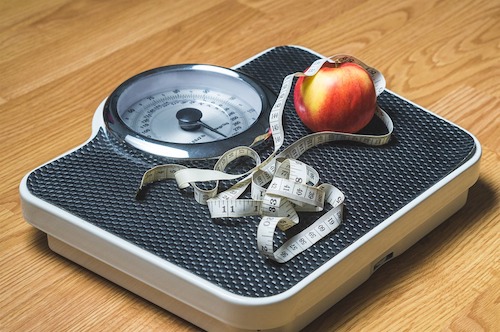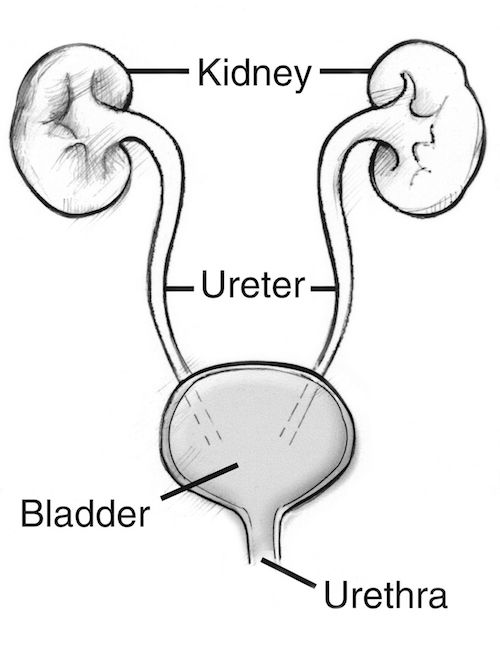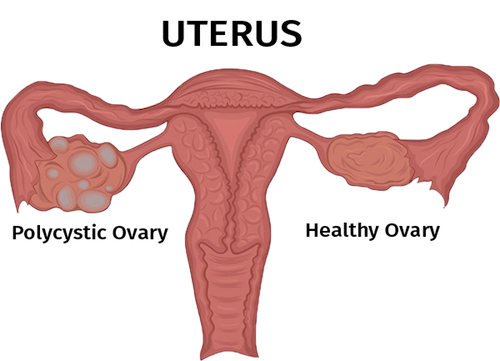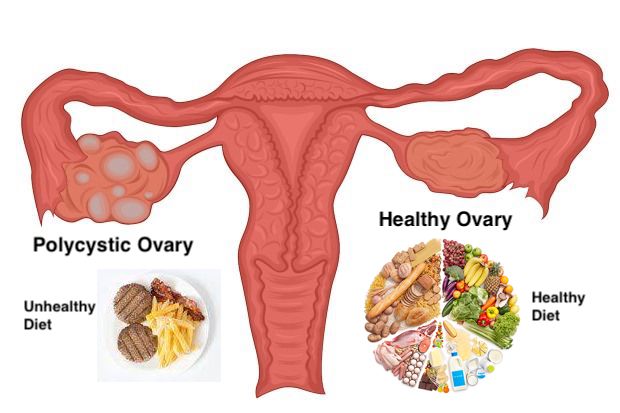Texts of ayurveda recommend various treatments for cystitis or basthi shotha in women. These include herbs, diet and lifestyle changes that can be adopted in your ayurvedic daily routine or dinacharya .
Read this article in Kannada ಮಹಿಳೆಯರಲ್ಲಿ ಸಿಸ್ಟೈಟಿಸ್ಗೆ ಆಯುರ್ವೇದ ಪರಿಹಾರಗಳು
Table of content
Ayurvedic Medicine for Cystitis
For cystitis caused due to bacteria, treatment with antibiotics is the first line of treatment. After this treatment the following remedies can be used to keep this condition at bay.
Cystitis Ayurvedic Diet
Various foods trigger cystitis. This is because these foods absorb more water or jala dhatu from body and make the urine more acidic. Foods that may trigger cystitis are of katu ( spicy) , tikta ( bitter ) and ruksha ( increasing dryness of tissues) in nature.
It is also advisable to write a journal and note which foods trigger this condition. Avoiding the triggering foods help to keep the cystitis under control.
Foods that promote bladder health
The following foods help to improve bladder health
Butter milk ( takra), curd (dadhi) , water, barley, tender coconut water (narikelodaka) , sugarcane ( ikshu) juice, pears, bananas (kadali), green beans, squash, potatoes, lean proteins, whole grains, nuts, bread, and eggs.
Foods bad for bladder health
Examples for this type of foods are karela (bitter gourd) , green chillies, spices like cinnamon, black cardamom, black pepper etc, Coffee, tomatoes, hot and spicy foods, soda, alcohol, citrus juices and drinks, chocolate, caffeinated beverages, MSG, and high-acid foods. These foods specially trigger interstitial cystitis. Also sometimes foods sweetened with artificial sweeteners may also trigger this condition.
Ayurvedic Medicine for Cystitis:
Ayurveda acharyas recommend various Ayurvedic herbs and herbal Ayurvedic medicine as cure or treatment for cystitis. Before using these herbs please consult a qualified Ayurvedic physician.
Gokshura (Tribulus Terrestris):
Gokshura or Tribulus cleanses the bladder (Basti) and boosts the resistance of bladder to infection. This property is very useful in treating cystitis and urinary tract infections. Hence doctors at ayurhelp.com use this herb as an ingredient in ayurvedic treatment for cystitis and kidney stones.
Ushira or Vitever :
The herb Ushira or Vetiver is very useful in burning sensation of urinary tract and bladder. It effectively reduces inflammation of inner layers of bladder, urinary tract and urethra. Ushira acts as a superb coolant.
Punarnava (Boerhavia Diffusa ):
Punarnava (Boerhavia Diffusa ) acts as a diuretic and is used in Ayurvedic preparations for renal calculi (kidney stone), Cystitis and nephritis.
Bala (Sida Cordifolia )-
The diuretic properties of Bala (Sida Cordifolia ) herb help in cystitis and it rejuvenates urinary system.
Shatavari (Asparagus racemosus)
Shatavari (Asparagus racemosus) has body cooling properties and rejuvenates pelvic organs. Its anti-inflammatory properties help to soothe the irritated bladder.
Kulattha – Horse Gram (Macrotyloma uniflorum)
Regular consumption of cooked horse gram or Kulattha (Macrotyloma uniflorum) helps to expel small kidney stones. Scientific studies have shown that horse gram inhibits formation of calcium oxalate stones in kidneys.
Shilajit :
Shilajit has anti-inflammatory properties and helps to reduce inflammation of bladder. It is recommended in diseases related to urine like UTI, Kidney Stones etc
Guggulu (Commiphora Mukul ) :
Ayurveda acharyas recommend Guggulu (Commiphora Mukul ) resin to treat urinary calculi and cystitis
Haridra or Turmeric :
Turmeric or haldi is known to have antimicrobial properties. The active chemical component of turmeric is curcumin. Curcumin is a strong antioxidant and reduces inflammation by reducing histamine levels. It reduces the inflammation of bladder and boosts its immunity to infections.
Amla : Indain Gooseberry
Amla or Indain Gooseberry helps to soothe inner layers of bladder and helps to reduce frequency of urination.
Guduchi or Giloy (Tinospora Cordifolia )
Guduchi or Giloy (Tinospora Cordifolia ) strengthens the urinary system and increases the resistance of inner layers of bladder and urethra to fight repeated urinary tract infections and cystitis.
Rock Salt or Sendha Namak :
Rock salt or sendha namak pacifies all the three doshas (Vata, Pitta and Kapha) and is considered as the healthiest form of salt in Ayurveda. Ayurveda acharyas recommend to use this salt in day to day life.
Ginger :
Ginger has excellent anti-inflammatory properties. But this has to be used with caution in cystitis.
Cardamom:
Cardamom or ilaichi increases urine output and acts as a body coolant
Parnayavanai / Indian Borage / Ajwain Leaves
Paste of ajwain leaves or juice of ajwain leaves are administered orally to treat kidney stones. These leaves help to reduce inflammation and burning urination. Hence they are used in Ayurvedic treatment for Cystitis and UTI.
Ayurvedic Tips for Cystitis
Here are few tips which Ayurvedic practitioners recommend to manage bladder health.
- Do not hold the urge to pass urine. Empty your bladder frequently. This prevents microbial growth. Normally empty your bladder every 3 to 4 hours.
- Wipe your private parts from front to back. ( from vagina towards anus). This prevents passing of microbes and faecal matter from anus to vagina and urethra.
- Avoid tight fitting under wears and pants. Always prefer cotton clothes to synthetic ones. Change your panties twice daily. Wear clean fresh under garments.
- Avoid bubble baths, spermicides, diaphragms. These are the easy ways for microbes to enter urinary tract.
- Change menstrual pads and cups regularly. This prevents growth of microbes on these.
- Exercise regularly. Walking and pelvic floor exercises are good for bladder health.
- Maintain healthy body weight.
- Keep tobacco smoking or consuming tobacco in any form at bay. Avoid alcohol consumption.
- Avoid getting constipated. Empty your bowels regularly. Add plenty of fibre in your diet as a remedy for constipation.
- Drink adequate amount of water daily. Include tender coconut water, barley water, curd and butter milk in your diet. Curd and butter milk act as probiotics.
- Avoid foods that trigger cystitis.
- Include Horsegram or Kulattha or kulthi in your diet. According to principles of Ayurveda, it helps to prevent formation of kidney stones.
- Mix a teaspoon of apple cider vinegar in a big glass of water and drink it twice daily. This changes the PH of urine and makes it less hospitable for microbes.
- Mix bicarbonate of soda in a glass of water. This does the same as apple cider vinegar.
- Drink fresh green coriander ( hara dhaniya patta) or parsley tea.
- You can also drink cranberry juice and thyme tea.
- Practice yoga, meditation and mindful living to keep stress at bay. Increased stress can trigger cystitis.
- Eat less sugar and sweets. Sugar makes urine more acidic.
- If you have severe pain in pelvic area, massage the lower abdomen and lower back with warm ksheerabala oil and place a hot water bag on massaged area. The process of massage is known as abhyanga in Ayurveda.
(WhatsApp Dr. Savitha Suri @+ 91 6360108663/ to know more about ayurvedic treatments and remedies )
Author: Dr.Savitha Suri , Consultant Ayurvedic Physician
WhatsApp + 91 6360108663/






